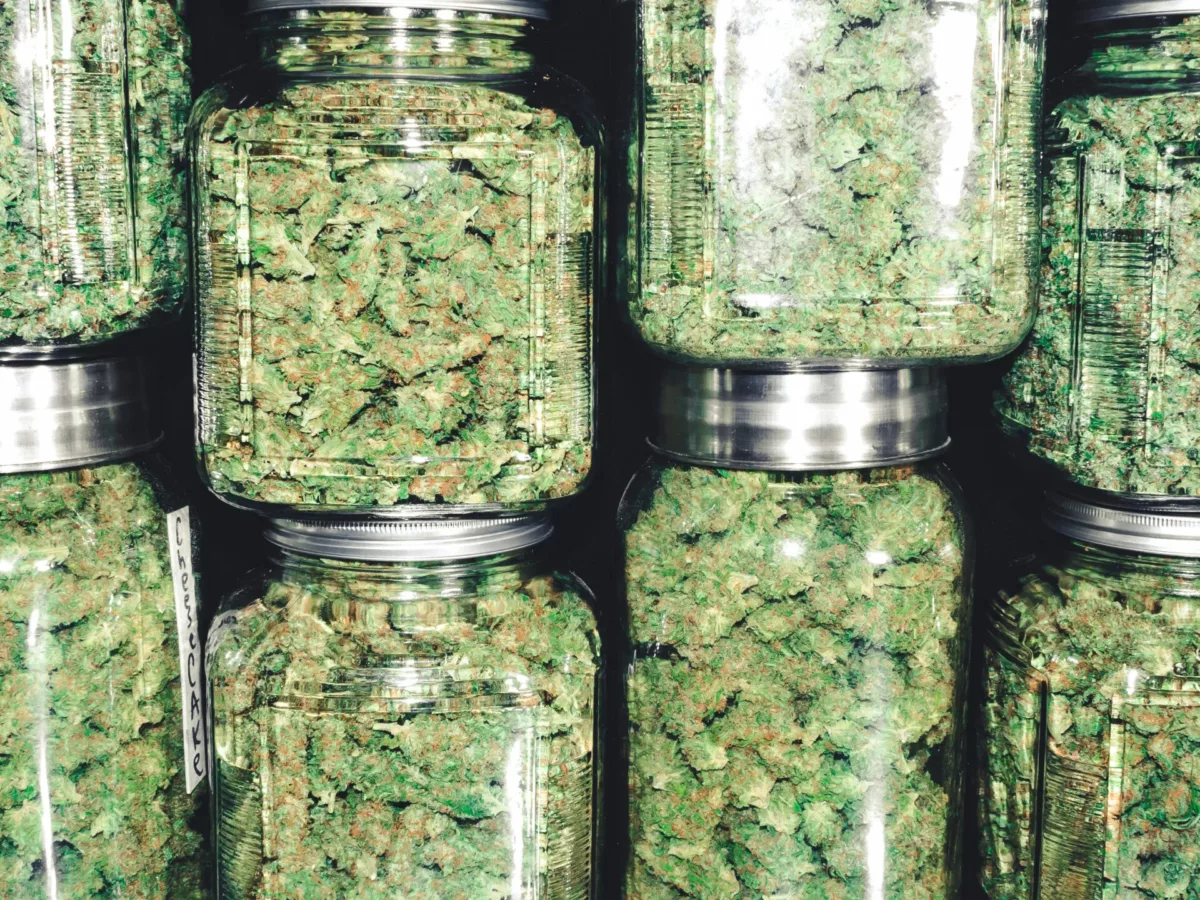Three-fifths of Marylanders support legalizing recreational cannabis use while one-third are opposed, according to the latest polling out of Goucher College.
The results, shared on Tuesday, represent a slight dip from seven months ago, when 67% of surveyed adults said they supported allowing recreational use, in line with policies across 18 states and the District of Columbia. The latest tally of 60% still represents the second-highest share of residents in support of legalization since Goucher College started asking about the issue in 2014.
Mileah Kromer, director of the Sarah T. Field Hughes Center for Politics at Goucher College, noted that when factoring in the poll’s nearly 4% margin of error, “the decline is really not that significant.”
“For me, the larger trend that people should care the most about is that a majority of Marylanders, consistently over the last couple of years, have consistently supported the legalization of recreational cannabis,” she told The Outlaw Report, adding that the recorded decrease “suggests a slight decline in support, but not dramatic.”
And there’s also the political context, she said, noting that the conversation in Annapolis has since March moved from “‘we’re going to talk about’ it to the presiding officers of the Maryland General Assembly basically saying ‘we’re doing it.’”
While Goucher’s March poll showed a landmark political trend in the state with a majority of Republicans supporting legalization for the first time, in the most recent survey, 48% of GOP voters said they were in support, compared to 41% opposed. Among Democrats, 65% said they would back legalization while 30% stood against it.
Unsurprisingly, support was highest among the younger crowd. Two-thirds of Marylanders ages 18 to 34, as well as those ages 35 to 54, said they support authorizing recreational pot consumption for adults, compared to 49% of people age 55 and older.
Along racial lines, Black respondents were less supportive (53%) this time around than whites (66%), a departure from the spring, when 74% of Black Marylanders and 63% of white residents said they supported legalization.
“I think it’s important as always that we recognize Black voters are not a monolith,” Kromer noted, particularly with differing opinions among various age groups. (She noted the Goucher poll’s sample size of 700 wasn’t large enough to adequately compare opinions across both racial and age lines.)
Of the racial differences in opinion, Kromer added, “I think proponents of legalization of recreational cannabis need to make sure it’s something they take a close look at” as the legalization push heats up in Annapolis this coming spring.
The policy change — a 2022 priority for Maryland General Assembly leaders — also has a higher share of fans in the Baltimore area than elsewhere, the poll indicated. Support was stronger in central Maryland (66%) than in the Washington, D.C. suburbs (52%), or in the Eastern Shore or southern or western Maryland (58%).
The 60% mark still puts Marylanders in line with national public opinion trends. An April Pew Research Center survey found 60% of U.S. adults believe cannabis should be legal for both medical and recreational uses. A Quinnipiac University poll that same month reported 69% of adults think weed should be made legal nationwide.
The Goucher poll also took the pulse of state residents on matters like abortion and approval ratings for Republican Gov. Larry Hogan, who will leave office in 2022, as well as first-year President Joe Biden.
Eighty-eight percent of those surveyed said they want to keep abortion legal, though they were evenly split at 44% when asked whether the procedure should be legal “under any circumstances” or “only under certain circumstances.” The issue has returned to public scrutiny particularly as the Supreme Court considers a case from Mississippi that could pose a serious challenging to the 1973 Roe vs. Wade ruling that protected a woman’s right to have an abortion in the United States.
Hogan’s approval rating remains famously high in deep-blue Maryland, with 68% of adults approving of his job in office as of this month. For Biden, their approval mark dropped from 62% to 53% since March.






